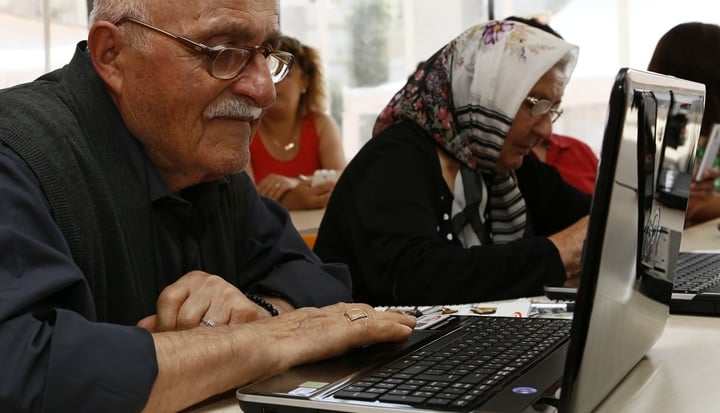The Business Call to Action interviews Abdullah Orkun Kaya, CEO of TTNET
TTNET was founded in 2006 and has become one of Turkey’s leading internet companies. The company plays a pioneering role in the communications industry with its mix of digital products and services, and also in developing responsible business models.
Offering a combination of three components for communication technologies – internet, internet protocol television (IPTV) and voice, TTNET meets all of Turkey’s communication requirements, generating digital convergence for audiences within different fields. Abdullah Orkun Kaya, CEO of TTNET, discusses the measures his company have taken to try and make the internet accessible for everyone across Turkey.
Recognising that economic barriers to technology can hinder the growth and development of all income groups and broaden the socio-economic gap, TTNET is working hard to change the landscape. Can you tell us a bit about your pilot program ‘Internet 4All’ and what it means for consumers across Turkey?
Turkey has been a success story, with a social dynamism and economic growth that has proven resilient to global turmoil. This remarkable growth inspires Turkey towards ever more ambitious goals, and TTNET’s Vision 2023 envisages Turkey among the world’s top ten economies in the centennial of the republic.
As is the case all over the world, digital information and communication technologies (ICT), and online services play a crucial role in this dynamism. Therefore, developing strategies that go beyond regular business growth is essential for Turkey’s ICT companies. TTNET is the leading internet service provider in Turkey, but our role goes beyond that: we are a natural leader for Turkey’s transition to an information society, with our holistic array of digital services ranging from entertainment to business entrepreneurship. We consider ‘going digital’ our own call to action – an important driver for development and prosperity.
This call forms the nucleus of our TTNET 360 Vision, which is about adding value through new digital applications that touch all aspects of daily life.
This means:
- Expanding Turkey’s digital ecosystem, with pioneering services focusing on digital innovation;
- Re-defining value for money and perceptions of the internet by providing better tools and more reasons to ’go digital’;
- Promoting technology to enhance local communities’ quality of life and ignite a major expansion of Turkey’s online population.
To achieve this, we have focused on shifting Turkey’s 10 million ‘non-users’ into ‘users’.
Internet penetration is gaining ground in Turkey, and TTNET’s core competency of providing high-value internet access has been a strong engine for growth: more than 6m ADSL lines have been secured in seven years.
However, we do not wish ourselves to be blinded by success. As part of our corporate responsibility strategy, we aim to open the gates of the internet to all. Despite the fact that internet penetration in Turkey has grown significantly during the past decade, a digital gap still exists due to economic, social and regional inequalities. Internet penetration rates are especially low in cities designated as ‘prioritised for development’ by the Turkish Ministry of Development.
However, even in this gap we see the potential for growth, especially in regions with limited development and incomes. We see the potential for a digitally enriched world in these economically and socially disadvantaged regions, and we are determined to fulfill this potential by creating a strategy that grows our business and ecosystem.
The Internet 4All initiative is our inclusive and holistic effort to facilitate the adoption of a digital lifestyle across Turkey’s different regions. We provide advantageous offers for internet services, especially in regions with economic disadvantages and low internet penetration, and create more reasons for people to connect by offering value-added services. The basic components are low-cost internet access, internet literacy training and Vitamin, our unique online educational platform that includes over 3,500 curriculum-based topics.
Internet 4All comprises:
- A holistic business model that enhances the low-cost service provided by offering exceptional value for money
- A compelling, dynamic, fun and educational user experience
- Empowerment through connectivity to the internet and all its services.
In 2013, the initiative benefited 250,000 households in priority development areas through its cost-effective internet package. In addition, 3,300 families started using the Vitamin online education portal free of charge. (The application was developed for primary and secondary education, and is compatible with the Ministry of National Education curriculum.) This initiative continued in 2014 with internet literacy training in priority development areas. In this way, TTNET is enabling those in priority-development and low-connectivity areas to access all the opportunities the internet provides.
Recent research by the Turkish Statistical Institute addressed the issue of necessity: more than 40% of those surveyed did not view the internet as a necessity at home. On the other hand, 32% responded that the internet is “expensive” or “not worth that money.” Considering these responses, we have focused on economic barriers and then on necessity. Through our Internet 4All initiative, the low-cost internet package has been very effective at connecting low-income communities.
Adding value through Vitamin and internet literacy training has also raised awareness about the benefits of the internet, especially among the families who see education as a main priority for their children. The initiative has surpassed its target of shifting 140,000 non-users to subscribers by addressing the two main reasons for not using the internet and making projections based on the profiles of non-users.
Your company has been on the forefront of targeting households with access to an online education platform called Vitamin. How does this program provide educational content to meet the needs of primary and secondary school children in remote areas of Turkey?
Vitamin is tailored to the needs of primary and secondary education, and includes a vast library of curriculum-based educational content as well as numerous features for students and educators. In addition to its visual and technical quality, Vitamin is the product of a strong educational-content design process. It utilizes teaching methodologies such as problem-based learning, game-based learning, conceptual learning and scientific inquiry.
Through its single-user database that spans many lessons and subjects, collaboration at home and in school between teachers and students is encouraged. Several researchers across the nation have demonstrated that Vitamin significantly improves the learning and teaching process. This is because Vitamin provides an engaging and dynamic learning experience that excites young people’s attention.
While consumer surveys indicate that low prioritisation is a major reason why many people do not connect to the internet, Turkey has a young population, for whom quality education is a top priority – especially in lower-income communities. Just like all parents around the globe, securing a better future for their children is their top priority. Vitamin creates a reason for families to prioritise the need for internet connectivity at home and drives young people – and their families – to adopt a digital lifestyle.
What are some of the other programmes your company has put in place to reach low-income consumers and provide greater access to the educational services that the internet and digital access can provide?
We are examining different income groups, customer profiles and segments in society, and continuously developing tailor-made solutions for various income levels, services and campaigns in line with our business objectives and developments in the market.
Reaching all income groups and decreasing the internet penetration gap in Turkey is within our strategy. We are designing packages that consider all income groups’ requirements and address them with value-added services. For example, this week we are launching a new back-to-school campaign, through which we will provide Vitamin to new customers free of charge for six months. We are aware that improving access to quality and affordable education is important for low-income families, and the internet brings an important opportunity to satisfy this need.
In addition to Vitamin, we have another e-learning platform called ProG. It provides nearly 100 different e-courses in categories such as professional development, information technologies, finance, foreign languages and personal development. Students who complete the professional development, information technologies or finance training are granted a digital participation certificate –making TTNET ProG one of the first completely online, university-approved certificate programmes in Turkey. With this online model, anyone in Turkey can participate in the courses to advance in their career.










